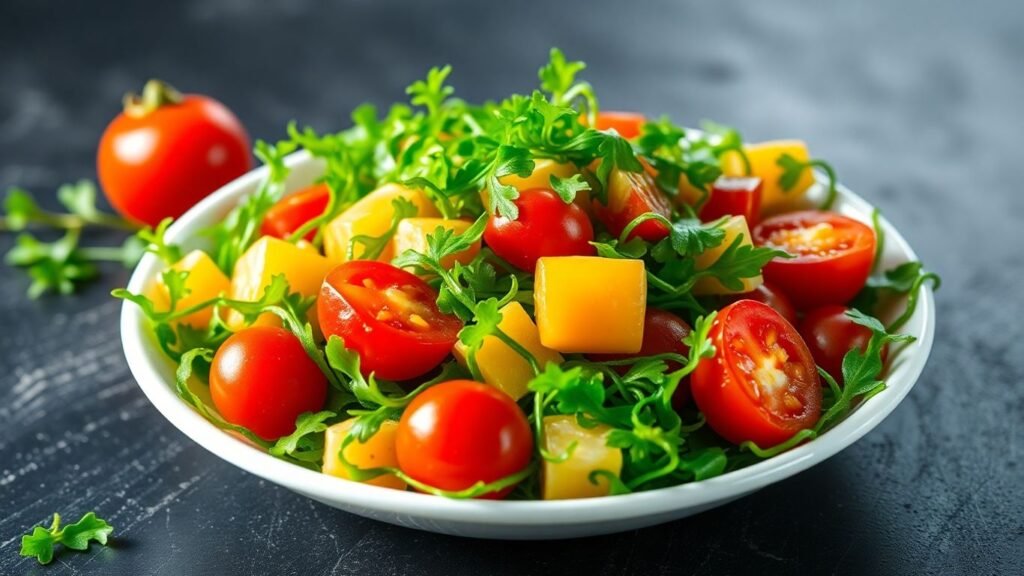You might know duckweed as that tiny plant floating on ponds, but guess what? It’s actually a serious contender for plant-based eaters looking for protein. Seriously. This little green marvel packs a punch nutritionally and is surprisingly sustainable. We’re going to explore how you can use duckweed protein recipes to shake up your meals, from savory dishes to sweet treats. It’s not as weird as it sounds, and the health benefits are pretty impressive. Let’s get into it.
Key Takeaways
- Duckweed is a highly nutritious aquatic plant, boasting a significant protein content that rivals traditional sources like eggs and meat.
- Processing duckweed into a usable form, like a powder, is key to incorporating it into various plant-based dishes, making it versatile for both savory and sweet applications.
- The plant offers a range of health benefits, including being a complete protein source, supporting gut health with polyphenols, and providing essential vitamins and minerals.
- Duckweed shows promise in managing blood sugar, supporting heart health with omega-3 fatty acids, and offering vital nutrients like iron, folate, and vitamin B12, which can be challenging for plant-based diets.
- Beyond its nutritional value, duckweed cultivation is highly sustainable, requiring minimal land and water compared to many other crops, aligning with eco-conscious food choices.
Understanding Duckweed Protein Recipes

Duckweed might not be the first thing that comes to mind when you think about food, but this tiny aquatic plant is actually a pretty amazing source of protein. It’s been used for ages in some parts of the world, and now, people are starting to see its potential for plant-based diets. Think of it as a super-efficient little green machine that packs a serious nutritional punch. It’s a sustainable option that can grow quickly and doesn’t need a lot of land or fancy fertilizers.
What Makes Duckweed A Protein Powerhouse
So, what’s the big deal about duckweed? Well, for starters, its protein content is seriously impressive. Some species can have as much as 40% protein by dry weight, which is right up there with things like soybeans or even animal products. This makes it a fantastic ingredient for anyone looking to boost their protein intake, especially those following a plant-based lifestyle. It’s a complete protein too, meaning it has all the essential amino acids your body needs. Plus, it grows incredibly fast, sometimes doubling its mass in just a couple of days. This rapid growth means it can be produced in large quantities without a huge environmental footprint. It’s a really efficient way to get protein into our food system.
The Nutritional Profile Of Duckweed
Beyond just protein, duckweed is loaded with other good stuff. You’ll find dietary fiber, which is great for digestion, and a good mix of vitamins and minerals like iron, zinc, and potassium. It also contains beneficial compounds called polyphenols, which have antioxidant properties. The exact nutritional makeup can vary a bit depending on the species and how it’s grown, but generally, it’s a nutrient-dense food. It’s not just empty calories; it’s packed with micronutrients that support overall health. For example, some studies show it has higher levels of certain amino acids than what’s recommended by the WHO. It’s a pretty well-rounded package.
Sustainability And Duckweed Cultivation
One of the most exciting things about duckweed is how sustainable it is to grow. Unlike many other crops, it doesn’t need vast tracts of farmland. It thrives in water, which means it can be cultivated in places where land is scarce or not suitable for traditional agriculture. This also means it uses less water and fewer resources overall compared to many other protein sources. Because it grows so quickly, it can be harvested frequently, providing a consistent supply. This makes it a really promising option for improving food security, especially in regions where access to protein can be a challenge. It’s a smart way to produce food with a lighter touch on the planet. You can find out more about its potential as a protein source for food security.
Duckweed’s ability to grow rapidly in diverse aquatic environments, coupled with its high protein content, positions it as a significant contender for future sustainable food systems. Its minimal land and resource requirements make it an attractive alternative to conventional agriculture.
Preparing Duckweed For Plant-Based Dishes

So, you’ve got this amazing, protein-packed duckweed, but how do you actually get it ready to eat? It’s not like you can just scoop it out of a pond and toss it in a salad, right? There are a few steps involved to make sure it’s safe, tasty, and ready for your plant-based creations. The key is processing it correctly to unlock its full potential.
Processing Techniques For Duckweed
Getting duckweed ready for your kitchen involves a few different methods, and each can affect its nutritional value and how it tastes. One study looked at drying techniques to see what worked best. They compared sun drying, shade drying, and a method called blanched sun-drying. This last one involves a quick heat treatment before drying in the sun. Turns out, the blanched sun-dried duckweed had the highest protein and mineral content, like zinc and iron. It also had a good amount of fiber. This method seems to concentrate the good stuff in the plant.
Here’s a quick look at what they found:
- Sun Drying: Simple, but might lose some nutrients.
- Shade Drying: Better for preserving some nutrients, especially fiber.
- Blanched Sun-Drying: Seems to be the winner for concentrating protein and minerals.
Ensuring Safety And Palatability
Now, about safety. Because duckweed grows in water, there’s always a concern about what it might pick up from its environment. Things like heavy metals, pesticides, or even tiny organisms could be present. That’s why proper cleaning and processing are super important. The studies suggest that while duckweed can be safe, it needs to be monitored. Palatability is another hurdle. While some cultures eat duckweed regularly, Western palates might need some convincing. The good news is that when it’s processed into something familiar, like a powder or incorporated into a dish, people are more open to trying it. It’s often seen as more appealing than other alternative proteins, like insects.
Consumers are more likely to accept duckweed when it’s presented in a way that feels familiar and not like a pond weed. Think of it as a versatile ingredient that can be transformed.
Creating A Versatile Duckweed Powder
One of the most practical ways to use duckweed is by turning it into a powder. This makes it super easy to store and add to all sorts of recipes. You can blend it into smoothies, mix it into baked goods, or even use it as a thickener in sauces. This water lentil powder is pretty neutral in flavor, which is a big plus. It means it won’t overpower your dishes. You can find this powder online or in some health food stores, often labeled as water lentil or Lemna minor. It’s a convenient way to boost the protein content of your meals without a lot of fuss.
Savory Duckweed Protein Recipes
When you think about plant-based protein, duckweed might not be the first thing that pops into your head. Most of us probably associate it with ponds and, well, ducks! But this tiny aquatic plant is actually a protein powerhouse, and it’s finding its way into some seriously tasty savory dishes. It’s a versatile ingredient that can be transformed into powders or used fresh, opening up a world of culinary possibilities.
Duckweed Protein In Plant-Based Meats
Duckweed is making waves in the world of plant-based meats. Its high protein content and neutral flavor profile make it an excellent base for creating meat alternatives that are both satisfying and nutritious. Think burgers, sausages, and even grounds that mimic the texture and taste of traditional meat. Because it can be processed into a powder, it blends well into existing recipes without drastically altering the flavor. This means you can get that meaty chew and protein boost without the animal products. It’s a smart way to boost the protein in your favorite vegan recipes.
Incorporating Duckweed Into Salads And Sandwiches
Beyond meat substitutes, duckweed is surprisingly adaptable for everyday meals. Imagine adding a sprinkle of dried duckweed flakes to your salad for an extra protein punch, or blending a bit of duckweed powder into your sandwich spread for added nutrition. Some studies suggest consumers find it more appealing when presented in familiar contexts, like a salad or sandwich, rather than as a standalone ingredient. It’s a subtle way to introduce more plant-based protein into your diet. You can even think of it as a new kind of leafy green, ready to be mixed into your favorite salad recipes.
Garnishes And Flavor Enhancements With Duckweed
Don’t underestimate the power of duckweed as a garnish or flavor enhancer. A light dusting of toasted duckweed powder can add a subtle, earthy note and a visual pop to soups, stews, or even roasted vegetables. It’s a way to add a little something extra without overpowering other flavors. Consider it a unique seasoning that also happens to be packed with protein. It’s a simple trick to make your meals more interesting and nutritious.
Duckweed’s ability to grow rapidly with minimal resources makes it an attractive sustainable protein source. Its adaptability means it can be incorporated into a variety of dishes, from hearty mains to lighter fare, offering a nutritional boost without a significant environmental footprint.
Sweet Applications For Duckweed

So, we’ve talked a lot about how duckweed can be a protein star in savory dishes, but what about the sweeter side of things? It might sound a little out there, but this tiny aquatic plant can actually be a fantastic addition to your favorite desserts and baked goods. Think of it as a secret ingredient that boosts the nutrition without messing with the taste you love.
Duckweed As An Egg Replacer In Baking
Eggs do a lot in baking – they bind ingredients, add moisture, and help things rise. Finding a good plant-based replacement can be tricky, but duckweed powder is showing some real promise. Because it has protein and other components, it can mimic some of the binding and structural roles of eggs. This means you could potentially use it in cakes, muffins, or even pancakes to make them more satisfying and nutrient-dense. It’s still a bit of an emerging area, but early results suggest it could be a game-changer for vegan baking.
Exploring Duckweed In Desserts
Beyond just replacing eggs, duckweed can be incorporated directly into dessert recipes. Imagine adding a spoonful of duckweed powder to your cookie dough or brownie batter. It’s so mild in flavor that it won’t overpower the chocolate or vanilla. The goal here is to add that protein punch and some extra fiber, making your treats a little healthier without anyone being the wiser. Some research even points to duckweed snacks having antioxidant properties, which is a nice bonus for any sweet treat.
Sweet Snacks Featuring Duckweed Protein
Let’s talk about snacks. We all need those quick bites to get us through the day, right? Duckweed can be a great way to make snacks more filling and nutritious. Think about energy balls, protein bars, or even a simple smoothie. Blending some processed duckweed into a smoothie is probably the easiest way to start. You get a good dose of protein and other good stuff, and the fruit and other ingredients usually mask any subtle flavor. It’s a smart way to boost your intake, especially if you’re looking for plant-based options. For more ideas on incorporating unique ingredients into your diet, you might find plant-based recipes interesting.
Duckweed’s mild taste and neutral color when processed make it surprisingly versatile for sweet applications. The key is in the preparation; turning it into a fine powder is often the best way to integrate it smoothly into batters and doughs without affecting texture.
Health Benefits Of Duckweed Recipes

When you’re looking for plant-based foods that pack a punch, duckweed is definitely worth a second look. It’s not just about the protein, though that’s a big part of it. This tiny aquatic plant comes with a whole host of other good stuff that can really support your well-being.
Complete Protein and Amino Acid Content
One of the biggest wins for plant-based eaters is finding foods that give you all the building blocks your body needs. Duckweed is a complete protein, meaning it has all nine essential amino acids. That’s pretty rare in the plant world, and it makes duckweed a fantastic addition to any diet. Studies show the amino acids in duckweed are easily absorbed by your body, similar to how your body handles things like cheese or pea protein. This high bioavailability means you’re really getting the most out of what you eat.
Gut Health and Polyphenols in Duckweed
Did you know that duckweed is loaded with over 200 different plant compounds called polyphenols? These aren’t just fancy names; they’re bioactive compounds that can do a lot of good. Research suggests these polyphenols are great for your gut bacteria, helping to keep your microbiome happy and healthy. A healthy gut is linked to so many things, from your mood to your immune system. Plus, duckweed contains compounds like lutein and zeaxanthin, which are known for their anti-inflammatory effects and are particularly good for your eyes. You can find out more about these bioactive compounds and their benefits.
Vitamins and Minerals for Immune Support
Beyond protein and polyphenols, duckweed also brings a good dose of essential vitamins and minerals to the table. It’s a source of vitamin A and zinc, both of which are super important for keeping your immune system strong. Having enough of these micronutrients can help your body fight off illness and bounce back quicker when you do get sick. It’s like giving your immune system a little extra backup, just by adding duckweed to your meals.
Advanced Duckweed Nutrition
When we talk about duckweed, it’s easy to focus on the basics – protein, fiber, that sort of thing. But there’s more to it, especially when you’re looking at how it can fit into a healthy, plant-based diet long-term. It’s not just about getting enough protein; it’s about the quality of that protein and what else the plant brings to the table.
Blood Sugar Management With Duckweed
Duckweed might actually help keep your blood sugar levels more stable. This is partly due to its fiber content, which slows down how quickly sugar gets into your bloodstream. Some research also points to specific compounds in duckweed that could play a role in how your body handles glucose. This is pretty interesting for anyone managing their sugar intake or just looking for foods that support steady energy levels throughout the day. It’s a subtle effect, but over time, it could make a difference.
Heart Health And Omega-3 Fatty Acids
Did you know duckweed contains omega-3 fatty acids? Yep, the same good fats you find in fish, but from a plant source! These are important for heart health, helping to keep inflammation in check and supporting overall cardiovascular function. While the amounts might not be as high as in fatty fish, every bit counts, especially for those on a plant-based diet who might need to be more mindful of their omega-3 intake. Getting these fats from a source like duckweed is a neat bonus.
Iron, Folate, And Vitamin B12 Sources
This is where duckweed really shines for plant-based eaters. It’s a good source of iron, which is often a concern for those avoiding meat. Plus, it provides folate, a B vitamin vital for cell growth and repair. Perhaps most excitingly, some studies suggest duckweed may contain Vitamin B12, a nutrient notoriously difficult to get from plants. This would be a game-changer for vegan and vegetarian diets, potentially offering a natural source of this critical vitamin. Of course, more research is needed, but the initial findings are very promising.
Here’s a quick look at some key nutrients:
- Iron: Important for energy and carrying oxygen.
- Folate: Needed for cell division and DNA formation.
- Vitamin B12 (potential): Crucial for nerve function and red blood cell production.
Duckweed’s nutrient profile goes beyond just protein. Its fiber, omega-3s, and potential for iron, folate, and even B12 make it a compelling addition to a balanced plant-based eating plan. It’s a small plant with big nutritional potential, offering support for everything from stable energy to heart health and vital nutrient intake. It’s worth exploring how this aquatic wonder can fit into your meals, especially if you’re looking for plant-based protein sources that offer more than just the basics.
So, What’s the Takeaway on Duckweed?
Alright, so we’ve talked a lot about duckweed, this tiny plant that usually just hangs out in ponds. It turns out it’s packed with protein and other good stuff, making it a pretty interesting option for anyone eating plant-based. While it might sound a little weird at first – I mean, it’s pond weed, right? – the research shows people are actually pretty open to trying it, especially when it’s used in familiar foods like snacks or even in dishes inspired by diets like the Green Mediterranean. It’s also way more sustainable than a lot of other protein sources out there. So, don’t be too surprised if you start seeing duckweed pop up more and more in your food. It’s definitely a plant with a lot of potential for the future of food.
Frequently Asked Questions
What exactly is duckweed?
Duckweed is a tiny green plant that floats on top of freshwater. You might have seen it in ponds! It’s super small, often less than 5 millimeters long, and it grows really fast, sometimes doubling in size in just a couple of days.
Is duckweed safe to eat?
Yes, duckweed can be safe to eat if it’s grown and prepared properly. It’s important to make sure it’s harvested from clean water and processed correctly to remove any potential harmful things like heavy metals or germs.
Why is duckweed considered a good protein source for plant-based diets?
Duckweed is packed with protein, sometimes as much as 40-45% of its dry weight! It also contains all the essential amino acids that our bodies need, making it a complete protein. This is great for people who don’t eat meat and are looking for plant-based protein options.
How can duckweed be used in cooking?
Duckweed has a mild flavor, so it can be used in many ways. It can be turned into a powder to add to smoothies, baked goods, or even plant-based ‘meats’. It can also be added to salads, sandwiches, or used as a colorful garnish.
What are some health benefits of eating duckweed?
Besides being a protein powerhouse, duckweed is full of good stuff like vitamins (especially A), minerals (like iron and zinc), and healthy plant compounds called polyphenols. These can help boost your immune system, support gut health, and even benefit your heart.
Is duckweed good for the environment?
Absolutely! Duckweed grows very quickly and doesn’t need much land or water compared to many other crops. It can even be grown in ways that help clean wastewater. This makes it a very sustainable food choice for the future.


